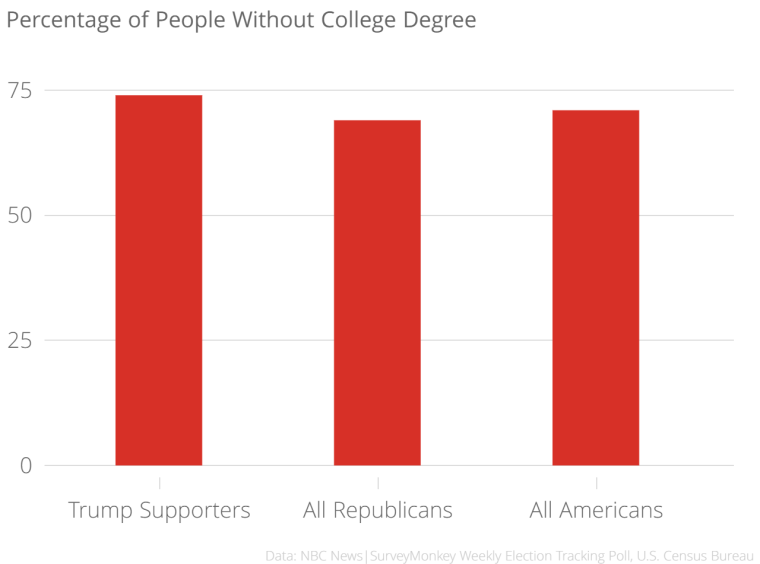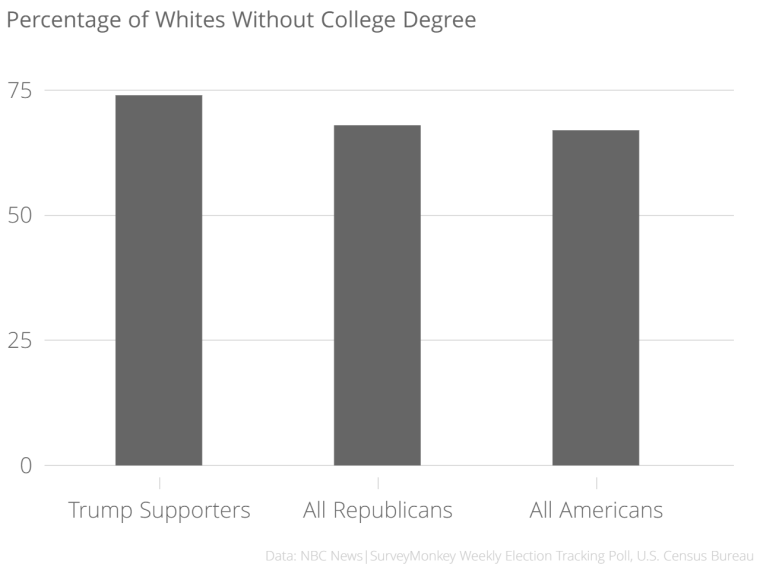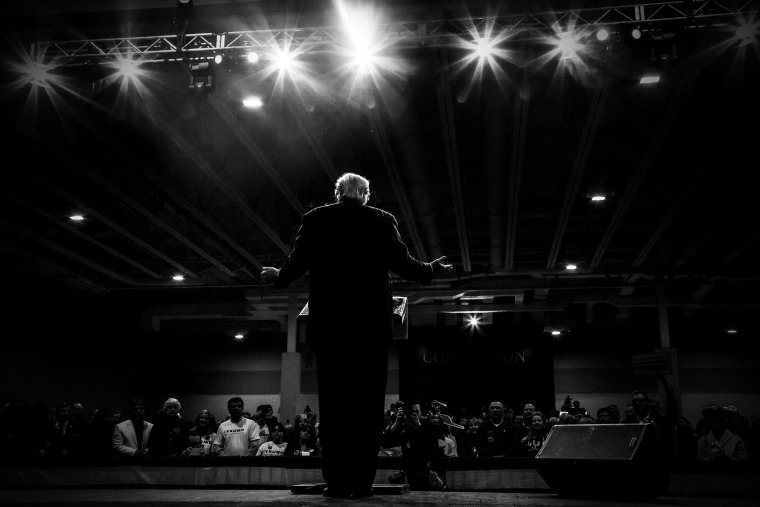The claim that Donald Trump has been doing so well in the Republican primary because he appeals to working-class voters appears to be flat-out wrong. Though some media outlets and political pundits are saying that Trump is winning because blue-collar, low-income, uneducated, working-class people are drawn to his message, this narrative does not seem to be supported by actual data from the election.
There’s no universally accepted definition of “working class” or “blue collar.” However, most claims about Trump’s appeal with this voting bloc seem to use terms like these as shorthand for lower-income Americans or people who don’t have college degrees. Some versions of this claim single out white Americans in particular.
Contrary to these statements, however, lower-income and less-educated people aren’t the only voters backing Trump. Trump supporters—even the white ones—are rich and poor alike. They are law school grads and high school dropouts. Trump is leading the pack in every corner of the GOP, not just the working class.
In terms of income among Trump supporters, you’ll find roughly equal numbers of high-income, middle-income and low-income voters. According to data from a national NBC News|SurveyMonkey Weekly Election Tracking Poll conducted online from March 7 through March 13, the share of Trump supporters who make more than $100,000 per year is almost exactly the same as the share of Trump supporters who make less than $50,000 (and that’s true even when you just look at white Trump supporters). Trump gets just as much of his support from the richest Americans as he does from the poorest.


In terms of education, it’s true that there are lots of people without college degrees backing Trump. But that’s because in the GOP—and in the U.S. in general—there are lots of people without college degrees period. According to the Census Bureau, among Americans 18 and over, about 71 percent don’t have college degrees. According to the tracking poll, among Trump supporters, about 74 percent don’t have college degrees, and that’s also true for the subset of white Trump supporters.
Trump’s fan base is not substantially less educated than the country as a whole.


The idea that Trump’s electoral success is because of a groundswell from lower-income Americans is also misleading. According to data from the same NBC News|SurveyMonkey Tracking Poll, Trump is currently the front-runner among every income and education group in the GOP. A plurality of every corner of the GOP is lined up behind him right now. In fact, he does best among very wealthy voters without college degrees, such as small business owners.
It’s not just the less fortunate who are drawn to Trump’s message – the billionaire’s appeal is much wider within the GOP.
Nicholas Carnes is assistant professor of public policy at the Sanford School of Public Policy at Duke University. He is the author of "White-Collar Government: The Hidden Role of Class in Economic Policy Making" (University of Chicago Press, 2013).
Noam Lupu is assistant professor of political science at the University of Wisconsin-Madison. He is the author of "Party Brands in Crisis: Partisanship, Brand Dilution, and the Breakdown of Political Parties in Latin America" (Cambridge University Press, 2016).
